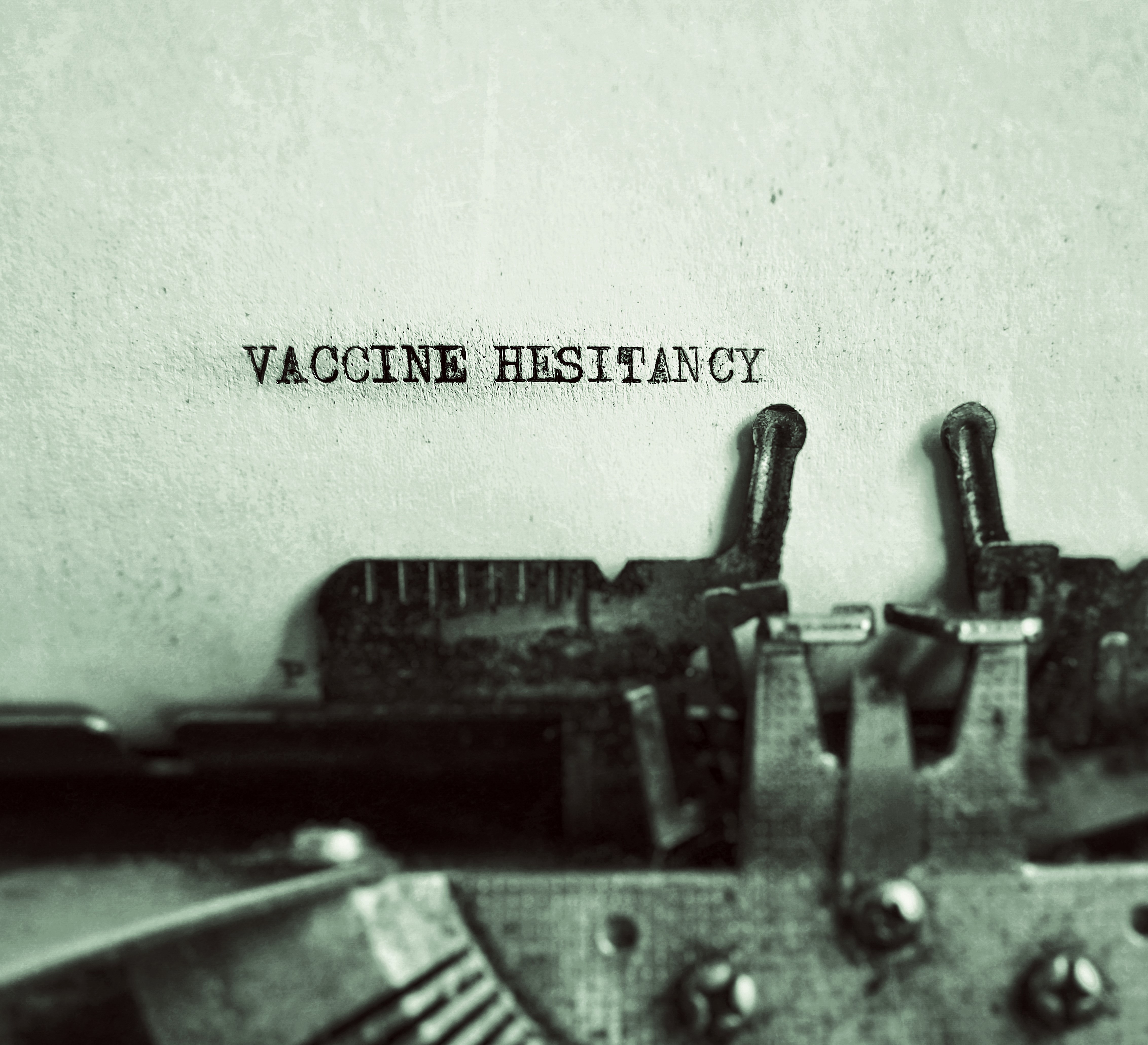 VACCINE MISTRUST: A LEGACY OF COLONIALISM
VACCINE MISTRUST: A LEGACY OF COLONIALISM
Margo Greenwood and Noni MacDonald | March 31, 2021
Margo Greenwood is academic lead of The National Collaborating Centre for Indigenous Health, and professor at the University of Northern British Columbia
Noni MacDonald is Professor of Pediatrics at Dalhousie University
Vaccine mistrust and concern about accepting vaccines was part of the general Canadian population’s response to routine immunization well before COVID-19. Such hesitancy among any population, including among Indigenous peoples, has the potential to impact everyone living in Canada. It is thus a pressing national challenge. Vaccine hesitancy among Indigenous peoples is particularly complex because of the direct connection between vaccination and colonialism. Acknowledging and addressing that lineage is the only way to build trust and overcome hesitancy about the COVID-19 vaccine.
Indigenous peoples in Canada have a bleak history of death and near annihilation as a result of vaccine preventable diseases such as smallpox, diphtheria, polio, and tuberculosis, among others. What is more, settler governments stripped Indigenous peoples of rights to make basic choices about our own lives and many were confined to isolated reserves. Segregated substandard health care facilities and services were established, including Indian Hospitals—federally operated segregated hospitals where forced medical experimentation was conducted on children and adults.[1] These included nutritional experiments, vaccine testing for TB, and uninformed and coerced sterilization.[2] Residential schools were also sites for forced experimentation on children.[3]
Memories of these atrocities are passed from generation to generation. Tragically, the legacy of colonial violence endures. Examples include the grotesque racist treatment of 37-year-old Atikamekw woman Joyce Echaquan in 2020, allegations of racism against British Columbia’s health care system in the same year, the blatant neglect of Brian Sinclair and his unnecessary death in 2008 at age 45, and the ongoing forced and coerced sterilization of Indigenous women and girls. These disturbing events lay bare the level of entrenched, insidious racism permeating Canadian society.[4] This is a daily reality for many Indigenous peoples. This demands societal change.
These legacies result in persistent health and social inequities for Indigenous peoples. COVID-19 is shining a spotlight on these injustices. Many Indigenous populations’ experiences with overcrowding, little or no access to safe water, and an ongoing mistrust in the health care system have resulted in an emergency among Indigenous peoples and communities that has culminated in and contributed to high rates of COVID-19 infection and deaths.
Historic and present-day inequalities cannot be separated from Indigenous peoples’ questions about COVID-19 vaccines. Vaccine hesitancy and Indigenous populations’ past experiences of medical experimentation are inextricably connected. This hesitancy has arisen from decades of neglect and willful ignorance about the unfair conditions created for Indigenous peoples across this country. Questions about the value and safety of these vaccines are directly impacted by Indigenous peoples’ recent memories of fighting to regain and retain the most basic legal human rights to personal choice about and control over their own bodies. A lack of vaccine acceptance is a symptom of ongoing mistrust that is our collective colonial lineage.
Acknowledging and supporting Indigenous peoples’ right to self-determination – the right to choose – is a critical step in addressing COVID-19 vaccine mistrust. Indigenous peoples have the right to credible and culturally-relevant information in order to make an informed choice. They have the right to question. They have the right to say “no.” They also have the right to resources and strategies that acknowledge the colonial lineage and provide assurances that past atrocities will not happen again. All vaccine literatures for Indigenous peoples must draw on the strengths of our cultures and our teachings. They must be co-created rather than imposed. This includes recognizing, celebrating, and drawing on intergenerational relationships and the collective orientations of Indigenous cultures. In this spirit, many Indigenous Elders and Leaders from across the country have endorsed the COVID-19 vaccine as a means to protect our grandchildren and children, our families, and ultimately our communities.
In the short-term, enhancing vaccine acceptance among Indigenous peoples will rest on pairing messaging about the scientific efficacy of the COVID-19 vaccine with information that is grounded in the strengths and wisdom of our teachings. All vaccine messaging for Indigenous peoples must support the precious and hard-fought right to personal choice. We must not allow history to repeat itself. It will be the work of all Canadians to acknowledge the legacies of colonial harm and to commit to a future of equity.
This article initially appeared in the Globe and Mail on March 31, 2021.
[1] Mosby, I., & Swidrovich, J. (2021). Medical experimentation and the roots of COVID-19 vaccine hesitancy among Indigenous Peoples in Canada. CMAJ, 193: E381-3. https://doi.org/10.1503/cmaj.210112
[2] Collier R. (2017). Reports of coerced sterilization of Indigenous women in Canada mirrors shameful past. CMAJ: Canadian Medical Association Journal, 189(33), E1080–E1081. https://doi.org/10.1503/cmaj.1095471; Mosby, I., & Swidrovich, J. (2021). Medical experimentation and the roots of COVID-19 vaccine hesitancy among Indigenous Peoples in Canada. CMAJ, 193: E381-3. https://doi.org/10.1503/cmaj.210112; Stote, K. (2017, Fall). Birthright denied: The sterilization of indigenous women. Herizons, 31, 16. http://prxy.lib.unbc.ca/login?url=https://www-proquest-com.prxy.lib.unbc.ca/magazines/birthright-denied-sterilization-indigenous-women/docview/1991944636/se-2?accountid=14601.
[3] MacDonald, N. E., Stanwick, R., & Lynk, A. (2014). Canada’s shameful history of nutrition research on residential school children: The need for strong medical ethics in Aboriginal health research. Paediatrics & child health, 19(2), 64. https://doi.org/10.1093/pch/19.2.64; Turpel Lafond, M.E., (Nov. 2020). In plain sight: Addressing Indigenous –specific racism and discrimination in BC health care. Ministry of Health.
[4] National Collaborating Centre for Indigenous Health (NCCIH). (2020). Informed choice and consent in First Nations, Inuit and Metis women’s health services National forum, January 28-29, 2020. https://www.nccih.ca/Publications/lists/Publications/Attachments/IC/RPT-NCCIH-Consent-Summary-Bios-EN_Web_NIVA_2021-03-18.pdf; Shaheen-Hussain, S. (2020). Fighting for a hand to hold Confronting medical colonialism against Indigenous children in Canada. Montreal, PQ: McGill University Press; Turpel Lafond, M.E., (Nov. 2020). In plain sight: Addressing Indigenous –specific racism and discrimination in BC health care. Ministry of Health.


